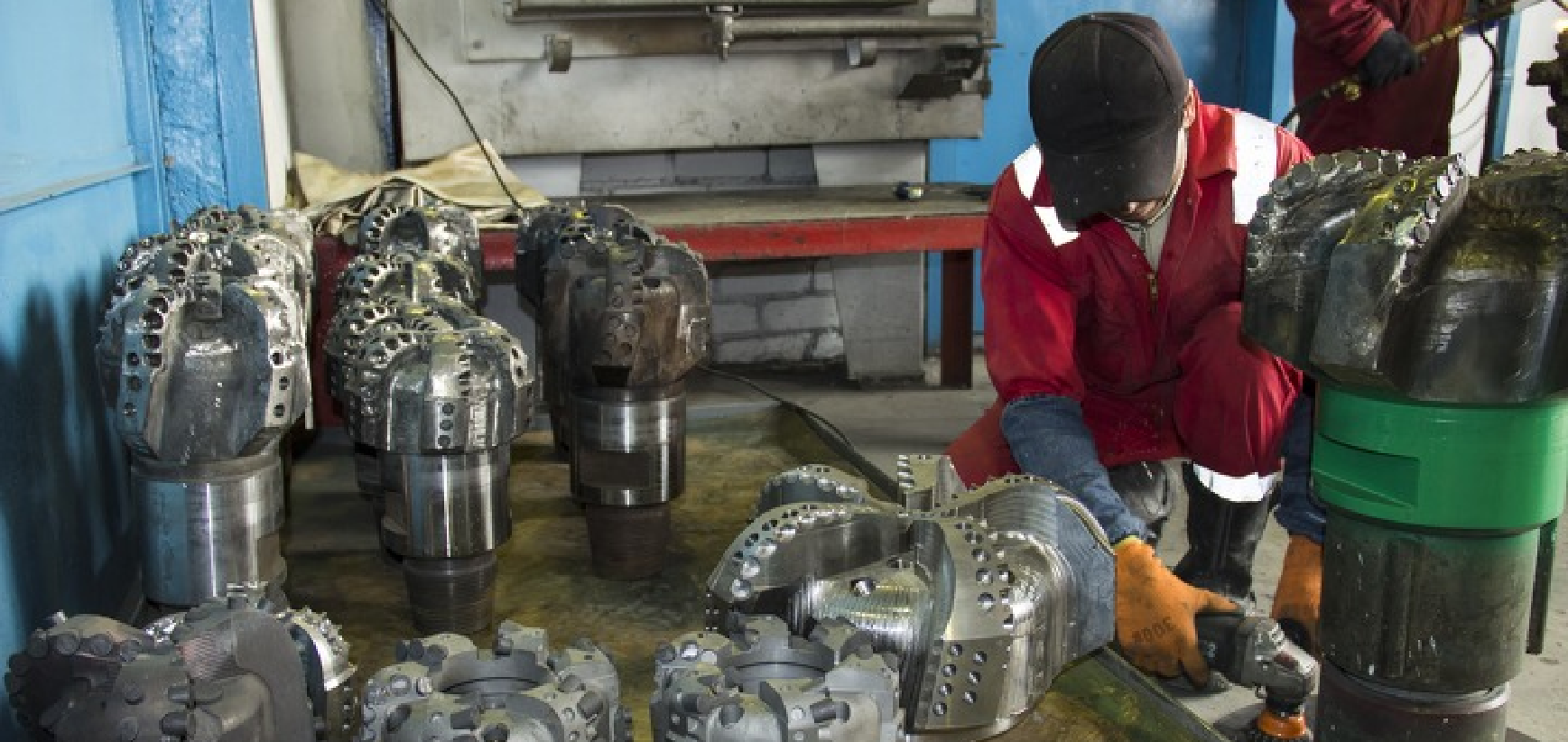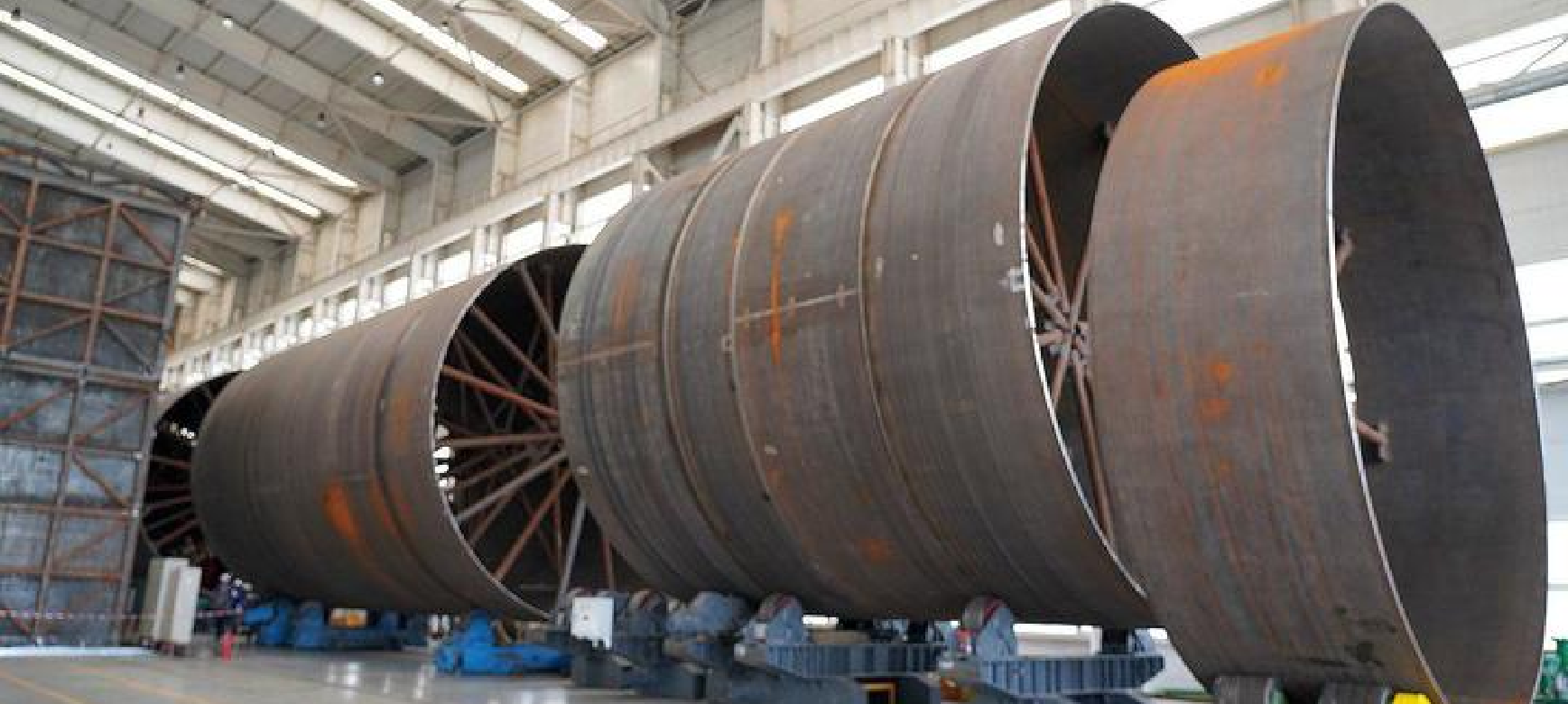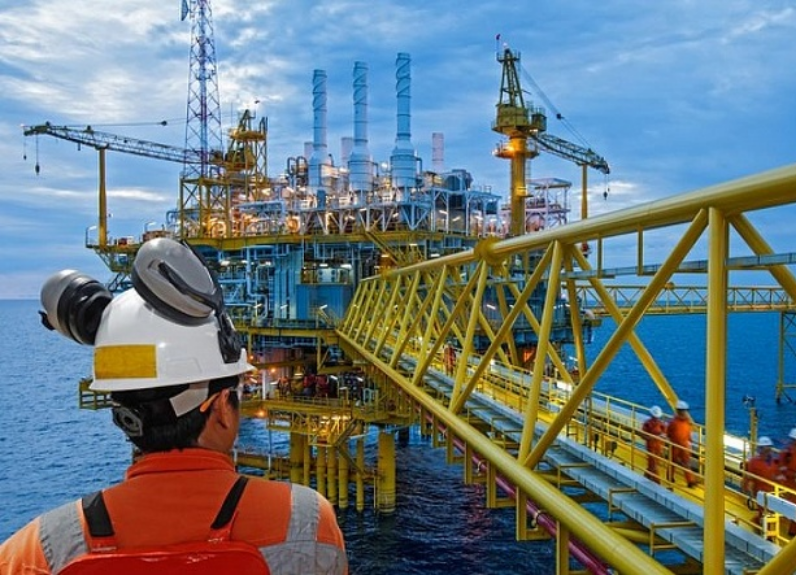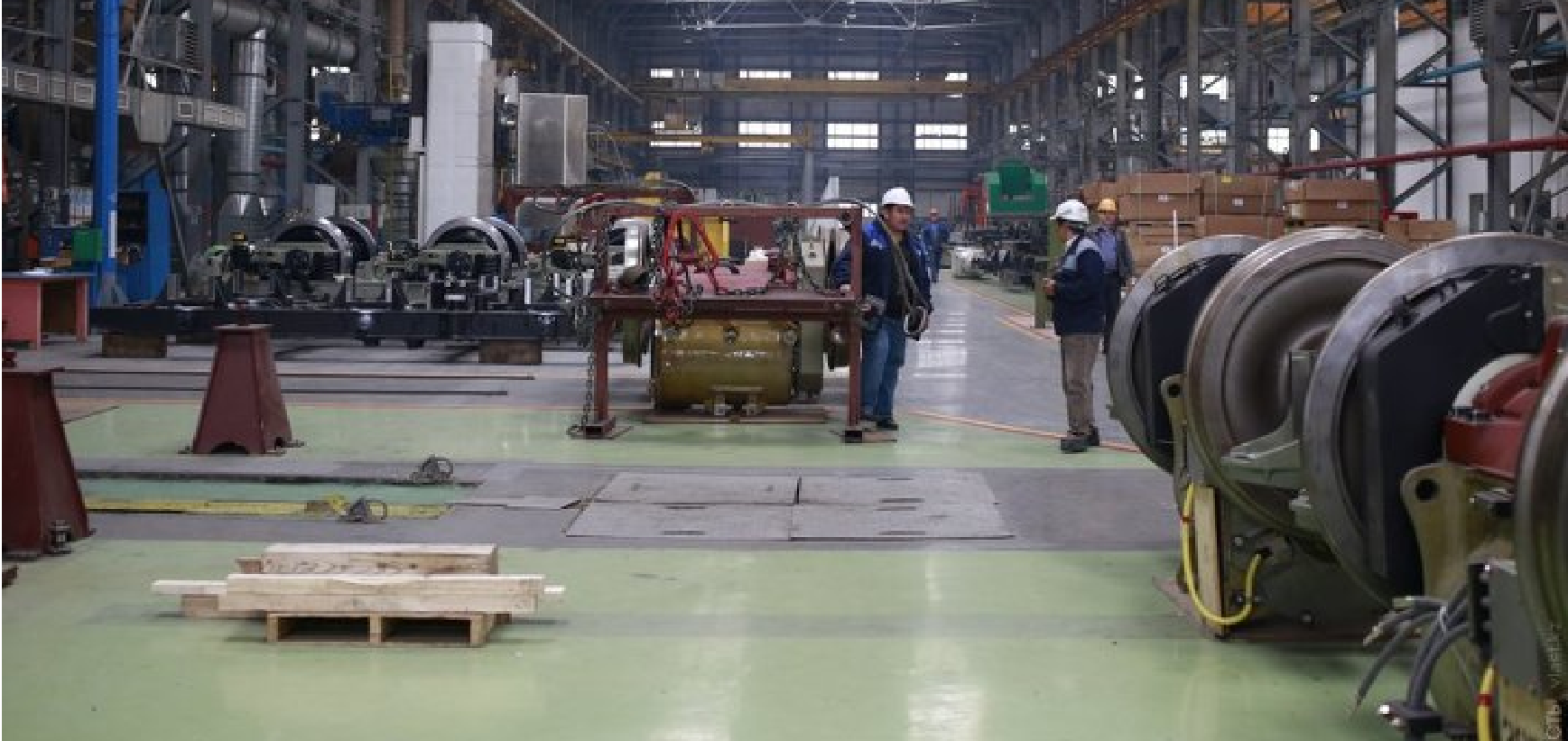



How customers, along with the government, are trying to develop domestic engineering and what problems they face on the way to the implementation of support measures.
On July 26, 2019, the government of Kazakhstan approved the Roadmap for the development of mechanical engineering for 2019-2024, consisting of 57 points, for the implementation of which state bodies are responsible. The relevant ministries of industry and energy, in turn, have developed a separate action plan for the development of oil and gas engineering.
The heads of relevant departments have already reported on the bright prospects for the development of engineering and the growing demand for engineering products to Prime Minister Askar Mamin on June 17 at a meeting in Atyrau. Domestic machine-building enterprises, in turn, complained about the lack of orders from three large oil and gas operators: Tengizchevroil LLP (TCO), North Caspian Operating Company (NCOC) and Karachaganak Petroleum Operating (KPO).
Then, during the meeting, major oil and gas operators reported that they are well acquainted with the production capacities of domestic machine builders, and today more than 50 machine builders have contracts with TCO, 25 Kazakh machine builders are already supplying vessels, heat exchangers, diamond drill bits, metal structures, transformers to the Karachaganak project and other product lines worth more than $165 million , and NCOC is placing large orders for domestically produced vessels, containers and valves.

At the same time, Pavel Beklemishev, a member of the board of the Union of Machine Builders of Kazakhstan , believes that the machine-building industry is in stagnation. Yes, Prime Minister Askar Mamin approved the Roadmap for the development of mechanical engineering, he noted, but the comprehensive plan does not contain specific effective measures. At the same time, speaking about machine building in the oil industry, Pavel Beklemishev emphasized that there is a long-term steady demand for the oil and gas machine building market.
So what is happening in the market itself, where large projects are being implemented, such as the TCO Future Growth Project (FGP), the Karachaganak field to support the production shelf, “Phase 2” of the Kashagan project? As it turned out, there is an increase in demand for engineering products needed for these projects.
Then the question arises - what are domestic machine builders doing in order not to stay away from the rain of money "pouring" over large oil and gas projects?
Domestic machine builders have long complained that for long-term planning and timely preparation for the launch of production of new products for oil and gas customers, they lack information on the long-term needs of oil workers. However, back in 2014, Tengizchevroil LLP published on its website the entire technical specification for FGP for several billion dollars, and every year all oil and gas companies upload short-term and long-term plans for the purchase of goods and services to the special website of the Ministry of Energy, which are deposited in the bowels of the IACOG, a division of the Ministry energy. Additionally, in April of this year, all major operators submitted information about all their needs to the Union of Machine Builders of Kazakhstan and machine-building plants.
Moreover, it follows from the data of the Ministry of Energy that the share of Kazakh goods in the purchases of three large subsoil users is 19 billion tenge ($50 million), according to CT-KZ certificates. It should be noted that these figures do not include equipment and materials purchased by construction or EPC contractors of oil and gas operators. So, for example, KPO, the operator of the Karachaganak field, interacts with the machine-building enterprises of the WKO.
As part of the implementation of the SPIID national subcluster and the Memorandum on the Development of the WKO Oil and Gas Engineering Cluster between KPO, the WKO Akimat and the Mashzavod consortium, 8 contracts were signed in May 2019 aimed at mastering the production of engineering products in Kazakhstan. Also, KPO, having decided to provide an early opportunity to Kazakhstani manufacturers, held 4 early tenders in 2018-2019 aimed at mastering the production in Kazakhstan of goods of regular demand (flanges, gaskets, fasteners, process filters), which were previously imported. At the same time, many Kazakh producers did not show interest in mastering the production of seemingly relatively simple goods, although this could ensure their loading for 5 years.
In October 2018, NCOC awarded a contract to supply more than 200 units of ball valves from Bemer Armatura (Karaganda), which were successfully installed during the preventive maintenance work carried out in April this year. KPO also placed a trial order for ball valves from the same Kazakh manufacturer, and TCO intends to place a trial order for this product category with a Karaganda manufacturer.
In addition, operators are separately working on the “Make in Kazakhstan” requirement, when foreign companies are required to manufacture engineering products in exchange for contracts. For example, in this way, at the request of KPO, Tenaris invested and launched a $40 million casing and tubing cutting plant in Aktau. Now these products are also in demand at the Tengiz project, and after placing an order for KPO, Schneider Electric is manufacturing 5 modular substations in Kazakhstan worth $11 million. TCO also supported the initiative by placing an order for 2 modular substations with a similar requirement "Make in Kazakhstan". In this way, operators follow each other's successful localization cases and place orders with already verified manufacturers.

Are Kazakhstani goods really so uncompetitive that subsoil users are forced to buy foreign products, not Kazakhstani ones?.
An analysis conducted by the consulting company Center for Strategic Initiatives (CSI) identified several reasons for the non-competitiveness of domestic engineering products. The first reason is poor quality due to non-compliance with the requirements and technical standards of oil operators. The problem is that there is too little competition in the local market, it simply makes no sense for domestic enterprises to look for and fight for new customers, introduce new technologies and work on quality. The unwillingness to develop also “warms up” the support provided by the state to local producers, which provides local businesses with a kind of safety cushion. Knowing that operators will give preference to local products, domestic companies make minimal efforts to improve the quality of manufactured goods.
Consequently, The second reason is that often Kazakh manufacturers do not have international certifications, moreover, they are not interested in studying and implementing them in production, since there are no technical specialists who speak English at factories and even in the specialized machine-building union. The same KPO in 2017 faced the fact that 6 out of 8 Kazakhstani machine-building plants invited for free training and certification for the manufacture and repair of pressure vessels according to the American Society of Mechanical Engineers (ASME) standard refused to participate.


It is known that there is a difference between our quality standards and international ones, and local products meet only Kazakhstani quality standards. Therefore, oil and gas operators are not ready to consider their production facilities with high pressure and hydrogen sulfide content as a testing ground for products without an international specification, without time-tested certified imported materials and components that have proven reliability and long service life. Kazakhstani factories, in turn, are not ready to purchase foreign raw materials and components (in Kazakhstan there is no production of corrosion-resistant sheet metal, including clad metal) due to the need to negotiate with foreign manufacturers and their higher cost relative to more familiar Russian or Chinese ones.
The third reason is the lack of trust in local suppliers by oil and gas operators. It is not uncommon for local manufacturers to be late with the manufacture of equipment, there have been delays for a year. Any delay affects the work schedule and can lead to a stop in the production process, which in turn entails costs for the oil company as a whole. One day of downtime for large operators costs at least $15 million. It turns out that subsoil users simply do not want to take risks and lose money. By the way, oil and gas operators are reluctant to share information about those producers who let them down, preferring not to wash dirty linen in public and simply do not consider such producers in future purchases.
Taking into account that the oil produced at large projects is sour and aggressively corrosive, oil and gas operators place high demands on the quality of purchased products, which not every domestic machine builder is able to withstand. Obviously, customers are not interested in frequent replacement of equipment.
The fourth reason is the lack of business skills and meager skills in preparing tender documents. Often in Kazakhstani enterprises, letters of inquiry from potential customers are read only after the potential customer calls and asks to answer the e-mail. The preparation by random or inexperienced specialists of responses to market research questions or low-quality tender proposals automatically deprives the enterprise of the chance to receive an order, sometimes quite large.
The fifth reason is that many heads and management of factories, especially the heirs of Soviet engineering, usually former defense enterprises, the so-called red directors do not want to get involved in modernization, knocking out funds from shareholders, and attracting foreign technologies. It is easier to apply to local executive bodies or the government and complain about the lack of orders from a “unique enterprise”, which allows them to receive a state defense order (SDO) or an order from a quasi-public sector, for example, from subsidiaries of KazMunayGas or KTZh, as enterprises included in the Samruk- Kazyna".
Of course, not all Kazakh producers work poorly and of poor quality. There are also successful Kazakh machine builders with private capital who are trying, investing in their development and modernization, undergoing international certification, understand and speak the same language with customers and receive orders. Enterprises such as Atyrauneftemash, Zhigermunaiservice, Kaztsentroelektroprovod, Karasai Machine-Building Plant, Allageum Electric Group (Ural Transformer Plant, Kentau Transformer Plant), Imstalcon, Centech and other domestic enterprises, where are led by qualified managers, are competitive and have long-term contracts with oil and gas operators. Machine-building enterprises with foreign participation, such as Ersai, KKOI, also feel quite comfortable with orders.
By the way, 4 out of 9 Kazakhstani machine-building enterprises certified according to the ASME standard for the manufacture and repair of pressure vessels were financed by large subsoil users - NCOC and KPO. During 2018 alone, NCOC organized 104 training courses, which trained more than a thousand Kazakhstani technical specialists, to improve its professional base and meet the requirements of international standards, rules and strict industry regulations. And TCO, in cooperation with the European Bank for Reconstruction and Development (EBRD), assisted 27 companies in providing technical and quality certificates. During the same period, KPO invested in the training of 20 Kazakh companies IPMA project management or ISO 9001, 18001 and 28001 certification.
In principle, Kazakh machine builders can be divided into two categories: new enterprises with private capital, which invest in their development and modernization, undergo international certification, understand customers and receive orders, and heirs of Soviet mechanical engineering, who believe that subsoil users are simply obliged to load their enterprises , trying to get orders through public speaking and letters of appeal to the government or local executive bodies.
The need of oil and gas companies for engineering products will only grow, taking into account the plans of operators in the implementation of the “Phase 2” of the Kashagan field or Phase 1 of the Karachaganak Expansion Project. There is a constant demand for products needed for daily use, and there is no one to provide it.
It is obvious that after the full-fledged entry of Kazakhstan into the WTO, the heirs of the Soviet engineering industry, whose leadership missed the time for transformation and modernization, will sink into oblivion. Probably, for all interested machine-building enterprises, especially the former Soviet giant plants and enterprises from the quasi-public sector, a good shake-up is needed. The government should conduct an independent audit for their compliance with the requirements of end customers, that is, oil and gas operators, and check their readiness for the development of oil and gas products, make personnel decisions, and then provide long-term loans for modernization and strictly control their transformation into modern production.
It is also expedient to support small-scale production of components and growing enterprises with private or foreign capital by exempting raw materials and machine tools from tax and customs duties. Only then will the Kazakh engineering industry be able to meet the needs of large oil and gas operators. Otherwise, a one-sided approach requiring guaranteed orders from oilmen, roadmaps for the development of engineering, various action plans will remain on paper, because, as you know, water will not flow under the underlying stone of domestic engineering.